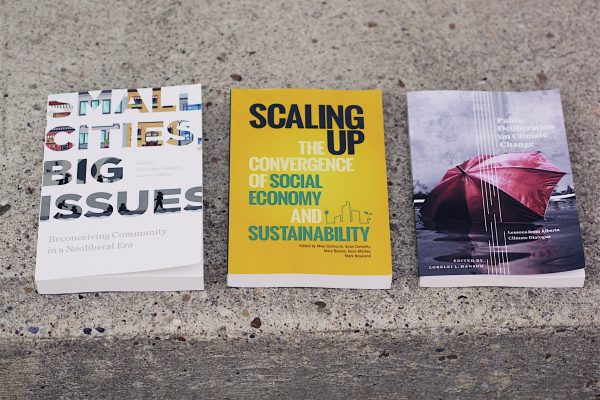Every October, we celebrate Open Access Week and have the opportunity to draw attention to our unique publishing model and important publications. The theme of Open Access Week this year is “Community over Commercialization,” doubling down on the theme of last year’s celebrations. We are thrilled to continue this important discussion about open scholarship that serves the best interests of the public and the academic community.
Taking the unprecedented step to build on this theme for a second year highlights the importance of this conversation and presents the opportunity to turn more of these deliberations into collective action.”
openaccessweek.org
Today, we are sharing five AU Press open access publications for general readers, policy makers, academics, journalists, and activists alike which highlight human connection over and above commercial enterprise and the profit motive.
![[book cover] The Art of Communication in a Polarized World](https://www.aupress.ca/app/uploads/120291_The-Art-of-Communication-in-a-Polarized-World-cover.jpg)
The Art of Communication in a Polarized World by Kyle Conway
In this compelling book, Kyle Conway confronts the communication challenges of our modern world by navigating the space between opposing perspectives. Conway explores how individuals can come to understand another person’s interpretation of the world and provides the tools for shaping effective arguments capable of altering their perspective. Drawing on the theory of cultural translation and its dimensions of power, meaning, and invention, Conway deepens our understanding of what it means to communicate and opens the door to new approaches to politics and ethics. An essential guide for surviving in our polarized society, this book offers concrete strategies for refining how values and ideas are communicated.
Small Cities, Big Issues: Reconceiving Community in a Neoliberal Era edited by Christopher Walmsley and Terry Kading
Small Canadian cities confront serious social issues as a result of the neoliberal economic restructuring practiced by both federal and provincial governments since the 1980s. Drastic spending reductions and ongoing restraint in social assistance, income supports, and the provision of affordable housing, combined with the offloading of social responsibilities onto municipalities, has contributed to the generalization of social issues once chiefly associated with Canada’s largest urban centres. As the investigations in this volume illustrate, while some communities responded to these issues with inclusionary and progressive actions others were more exclusionary and reactive. If local governments accept a social agenda as part of its responsibilities, the contributors to Small Cities, Big Issues believe that small cities can succeed in reconceiving community based on the ideals of acceptance, accommodation, and inclusion.
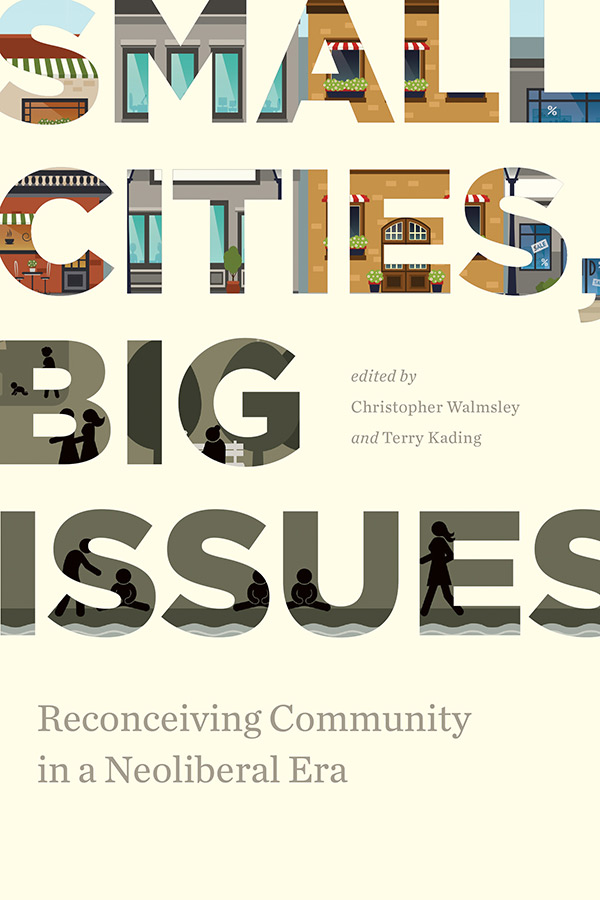
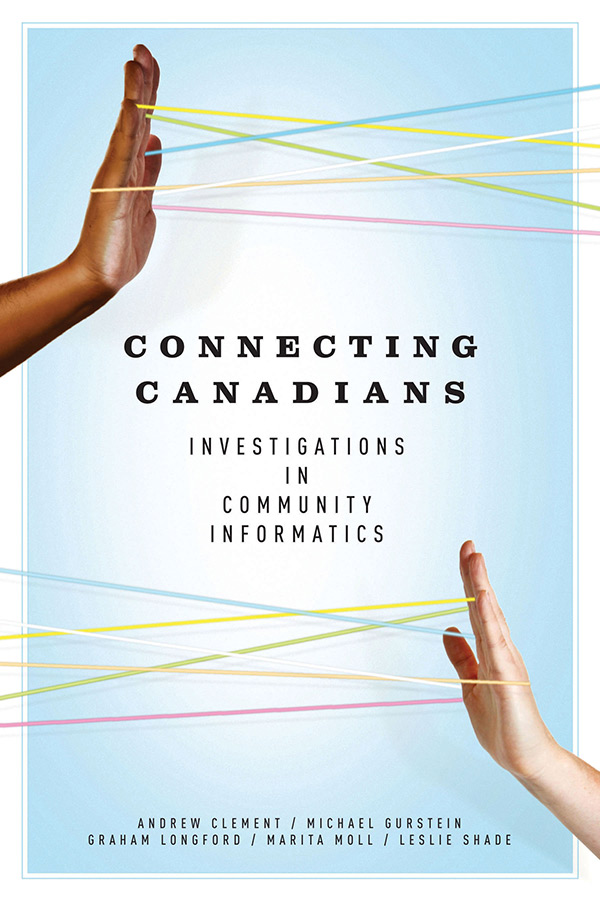
Connecting Canadians: Investigations in Community Informatics edited by Andrew Clement, Michael Gurstein, Graham Longford, Marita Moll, and Leslie Regan Shade
Connecting Canadians represents the work of the Community Research Alliance for Community Innovation and Networking (CRACIN), the largest national and international research effort to examine the burgeoning field of community informatics, a cross-disciplinary approach to the mobilization of information and communications technologies (ICT) for community change. Funded for four years by the SSHRC’s Initiative for the New Economy, CRACIN systematically studied a wide variety of Canadian community ICT initiatives, bringing perspectives from sociology, computer science, critical theory, women’s studies, library and information sciences, and management studies to bear on networking technologies. A comprehensive thematic account of this in-depth research, Connecting Canadians will be an essential resource for NGOs, governments, the private sector, and multilateral agencies across the globe.
Scaling Up: The Convergence of Social Economy and Sustainability edited by Mike Gismondi, Sean Connelly, Mary Beckie, Sean Markey, and Mark Roseland
When citizens take collaborative action to meet the needs of their community, they are participating in the social economy. Co-operatives, community-based social services, local non-profit organizations, and charitable foundations are all examples of social economies that emphasize mutual benefit rather than the accumulation of profit. While such groups often participate in market-based activities to achieve their goals, they also pose an alternative to the capitalist market economy. Contributors to Scaling Up investigated innovative social economies in British Columbia and Alberta and discovered that achieving a social good through collective, grassroots enterprise resulted in a sustainable way of satisfying human needs that was also, by extension, environmentally responsible. As these case studies illustrate, organizations that are capable of harnessing the power of a social economy generally demonstrate a commitment to three outcomes: greater social justice, financial self-sufficiency, and environmental sustainability. Within the matrix of these three allied principles lie new strategic directions for the politics of sustainability.
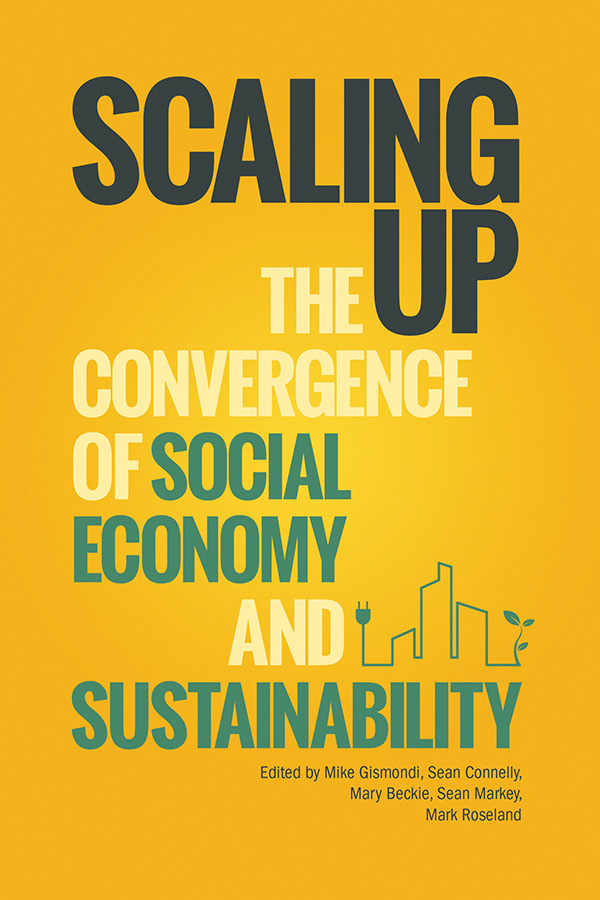
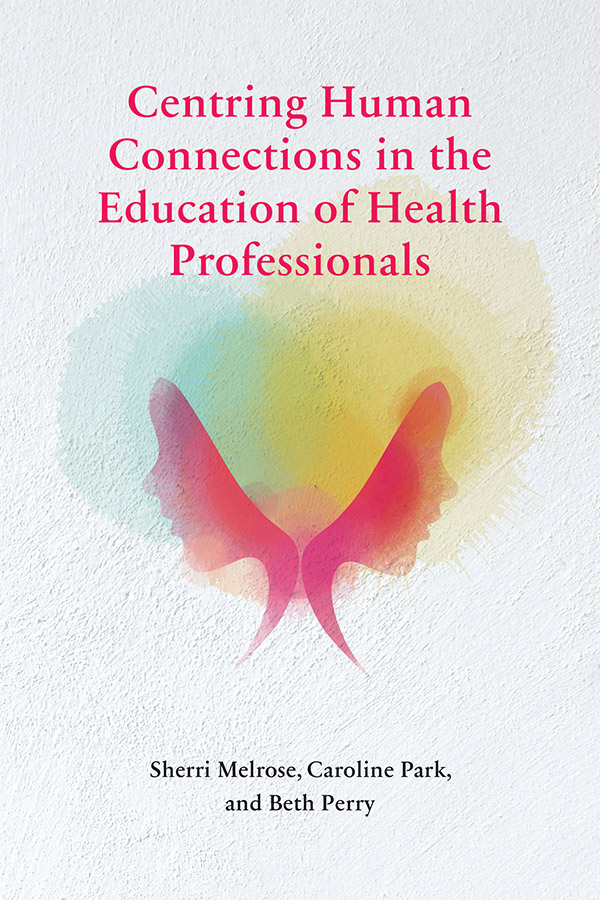
Centring Human Connections in the Education of Health Professionals by Sherri Melrose, Caroline Park, and Beth Perry
Many of today’s learning environments are dominated by technology or procedure-driven approaches that leave learners feeling alone and disconnected. The authors of Centring Human Connections in the Education of Health Professionals argue that educational processes in the health disciplines should model, integrate, and celebrate human connections because it is these connections that will foster the development of competent and caring health professionals. This practical volume equips educators working in clinical, classroom, and online settings with a variety of teaching strategies that facilitate essential human connections. Included is an overview of the educational theory that grounds the authors’ thinking, enabling the educators who employ the strategies included in the book to assess their fit within curriculum requirements and personal teaching philosophies and understand how and why they work.

